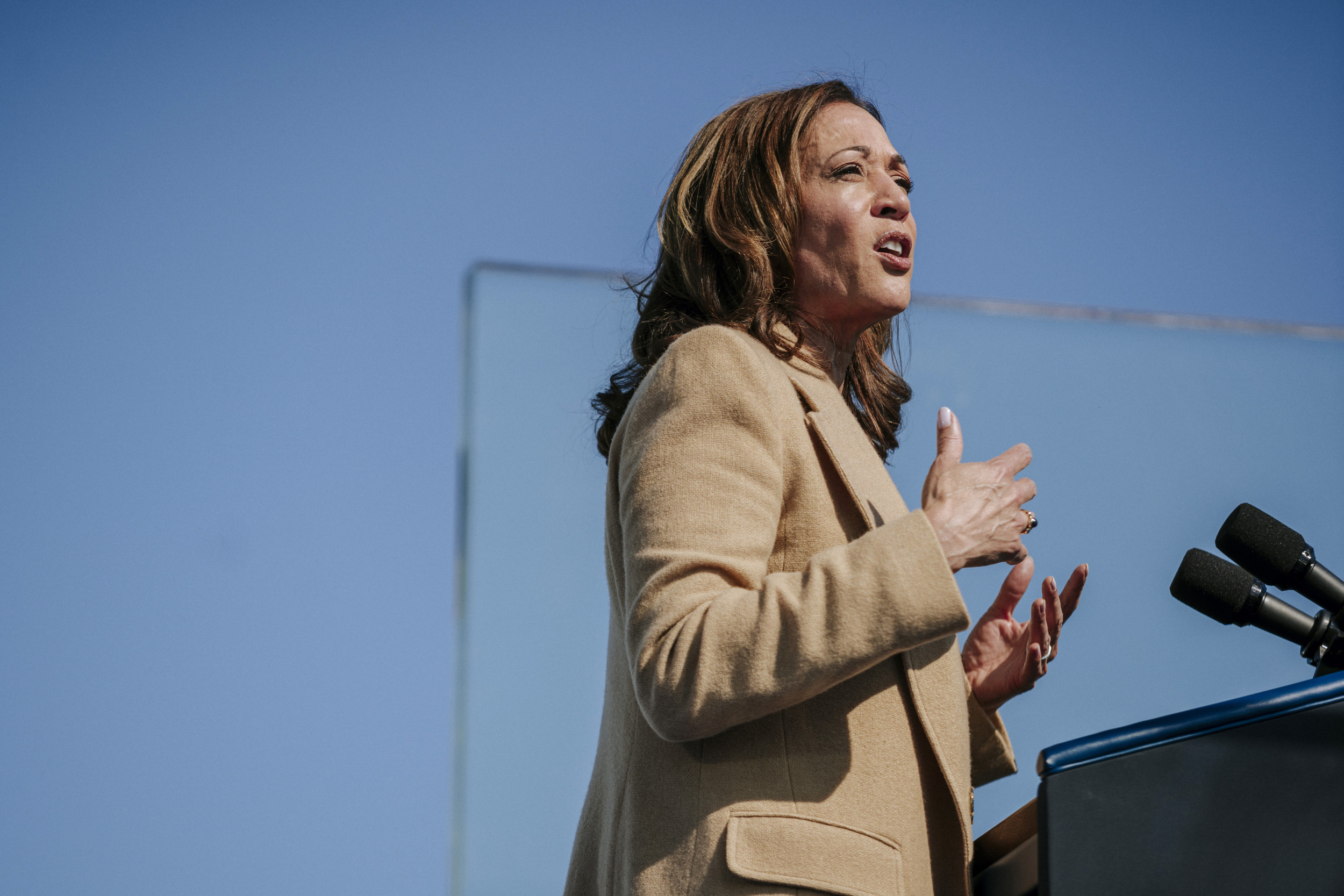Bussiness
Kamala Harris’ tax gimmick isn’t fooling small-business owners

In a recent poll by America’s premier small-business advocate—Job Creators Network—Vice President Kamala Harris trails former President Donald Trump by 12 points with the 30-plus million small-business owners in America. That wide margin is no surprise to small-business owners for two reasons: The first has to do with common sense and decency and the second with common experience.
Let’s talk about common sense and decency first, because Harris’ plan to offer a $50,000 tax credit for new startups means absolutely nothing to the existing 30-plus million small-business owners. It’s an insult, actually—if the Harris team had an ounce of common decency. Why give benefits to a nonexistent group that may or may not use a delayed benefit while offering no benefit at all to the tens of millions of small-business owners already serving their customers and communities right now? And fighting to stay alive—and grow.
To add insult to injury, Harris’ plan to raise taxes on corporations will increase taxes for roughly 20 percent of the small-business owners that have C corporations, as well as the large corporations in America that do business with those very small businesses. And the Harris plan to raise personal income taxes will affect many more millions of small businesses—the vast majority—that are either S corporations, limited liability companies or other entities that pass their business income through to the business owner’s personal balance sheets. A tax hike on owners’ personal income is, in effect, a tax on their businesses.
Worst of all, the benefit Harris is offering—a tax credit of $50,000—defies the stark realities of starting a business. It takes, on average, two to three years before startups turn a profit, according to the Small Business Administration (SBA). If and when they do, the majority of business owners reinvest their profits back into the growth of their companies. Which means it might be four to five years before the Harris incentives actually help a startup.
Which begs a simple question: Has anyone on the Harris team ever started or run a business, let alone a lemonade stand? Anyone doing even a cursory search on the Yahoo Business site, not exactly the Wharton business, would stumble upon the following statement about the early years of a startup: “Most entrepreneurs—at least those who value survival—reinvest almost all profits back into the business in those crucial first few years, even if it means living off savings or working a second job,” Yahoo wrote. To which any small-business owner anywhere in America would respond, with a shrug: “Duh!”
Photo by John Tully/Getty Images
Beyond Harris’ common sense and common decency problem, there’s the common experience millions of business owners shared during the Trump and Harris years. Across the board, Trump’s tax cuts had a positive impact on small-business growth, profits, workers’ wages and the overall economy. The rising economic tide lifted the boats of small-business owners from every walk of life: urban and suburban, young and old, straight and gay, male and female, and white, brown and Black alike. Trump’s tax cuts didn’t discriminate or create most-favored-status groups. They instead advanced the interests of all business owners equally. And powerfully.
“We see small-business owners taking advantage of the tax cuts and deregulation efforts led by President Trump to invest in their companies and their employees by raising wages, providing bonuses, increasing benefits and creating more jobs,” SBA Mid-Atlantic Regional Administrator Michelle Christian told the Associated Press in 2019. “The economy is strong, and small businesses are thriving.”
The fact is, small-business owners don’t need to be reminded how they fared under Trump; they remember. They watched him fight to lower corporate taxes from 35 percent to 21 percent, a massive break that allowed many owners to invest more of their own profits back into the business. They also watched him slash personal income taxes too, which helped many millions more.
While Harris and her Democrat allies caricature Trump’s tax cuts, he understood the plight of small-business owners. He understood how those tax cuts—corporate and personal—fuel the growth and success of the business community. And fuel the American economy too.
Trump understands these things because he was himself the product of a family construction business. He understands what makes small-business owners tick. What they worry about, what they go through and what motivates them. Most important, Trump understands that small-business owners want their businesses to grow into larger ones, with the hope of one day passing them along to their children.
Perhaps most important, Trump understands that the majority of net new job creation is driven not by big multinational corporations but by small-business owners, who employ nearly 50 percent of the American workforce. As small business goes, Trump knows, so goes America.
Small-business owners also remember how they fared under the Biden-Harris administration. They remember how inflation affected their bottom lines—and how rising interest rates caused by rising inflation created costs that affected small businesses disproportionately, compared with their big business counterparts.
And small-business owners most certainly remember how blue city and blue state Democrats treated small-business owners during the overextended COVID lockdowns. And how red state governors like Ron DeSantis of Florida and Brian Kemp of Georgia were attacked by Democrats and their media allies for caring more about money and the survival of their businesses than human life. Many lost their businesses entirely, while others are still grappling with the needless and senseless suffering those lockdowns caused small-business owners and their families.
Team Harris should stop pretending that it cares about the plight of small-business owners. Because they aren’t fooling anyone with their small-business startup gimmick. Especially the massive voting block of 30 million small-business owners and voters.








